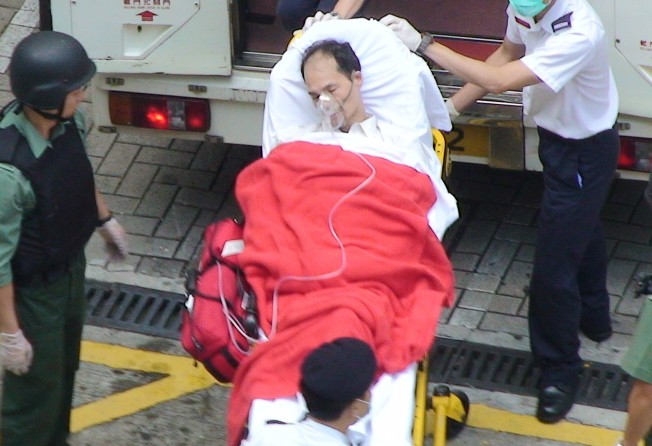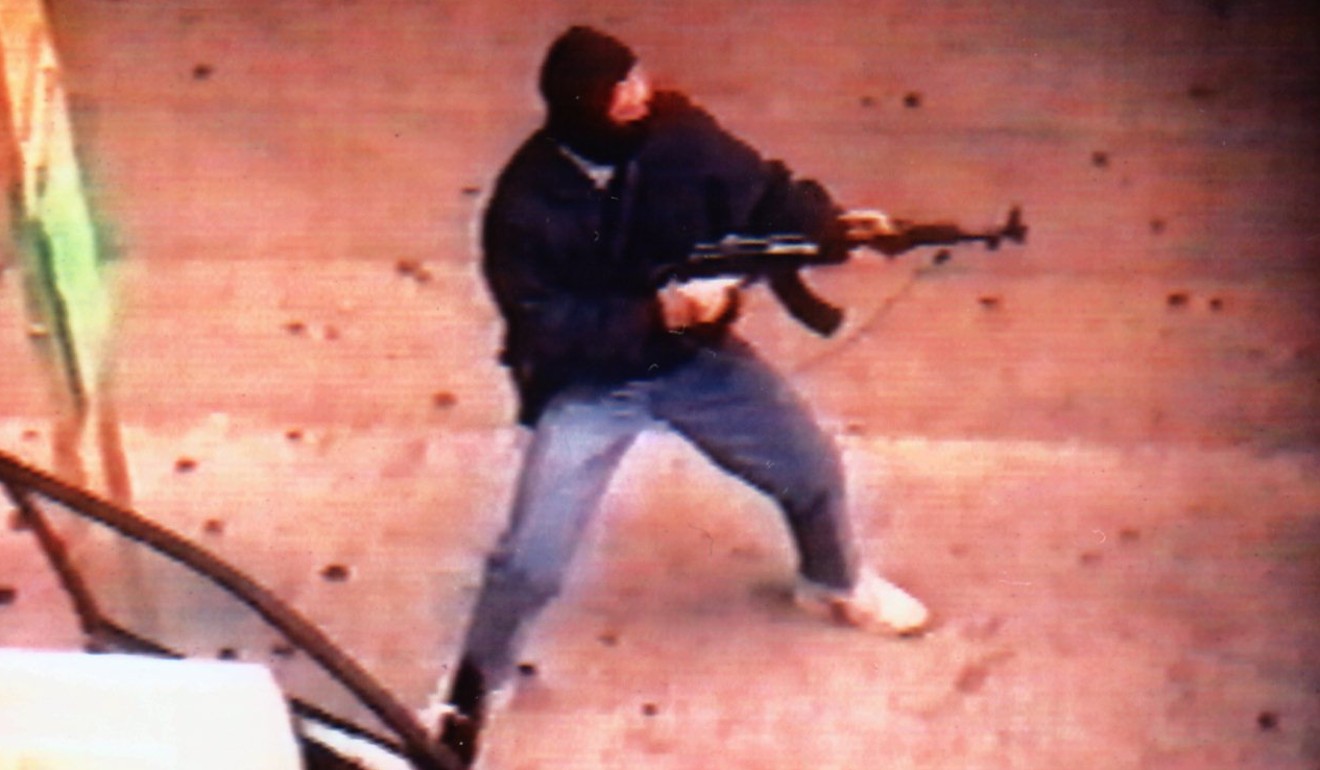Notorious Hong Kong robber Yip Kai-foon’s quiet and afflicted final days
Yip Kai-foon, infamous in the 1980s for daring hold-ups using AK-47s, was a taciturn and extremely unwell prisoner towards the end, inquest hears

One of Hong Kong’s most notorious criminals saw out his last days unable to talk after years of struggling to sleep or urinate, his inquest heard on Wednesday.
Far fallen from his AK-47-wielding heyday of the 1980s and 1990s, Yip Kai-foon was portrayed in court as someone who kept problems to himself. While in prison, he would decline treatment despite a string of chronic conditions that caused more than 20 hospital visits starting from 2009 until his death last year.
Yip, a smoker, was diagnosed with late-stage lung cancer just months before his death. That spread to his brain, leaving him unable to speak in his last days, the Coroner’s Court heard.
He died at 1.02am on April 19, 2017, aged 55, at Queen Mary Hospital in Pok Fu Lam, the same institution he once escaped from while in police custody. He was due to be released in August 2019.
“He rarely talked to us,” Lai Hon-man, an assistant officer at the Correctional Services Department, said when asked if Yip made any complaints before he was sent to the hospital for the last time.
Lai, along with doctors and other jail officers, was summoned to testify before five jurors, expected to return a verdict over the cause of Yip’s death on Thursday.
Dr Pe Yeuk-tai, who treated Yip a month before he died, recalled Yip’s reaction when it was suggested he go to the hospital. “What? I want to leave,” he told her, despite the strong pain.
“My colleague said eight out of 10 times, he would say he did not want to stay,” she said.
Before the inquest began, the court was told Yip’s wife, in mainland China, and one of his older brothers had asked to be excused from the session to avoid the media glare. Yip’s wife had not visited him for almost three years prior to his death, according to a statement from the brother, Yip Kai-yuk. The last time his daughter, who is in her 20s, paid him a visit was in 2016.

Yip Kai-foon, from Shanwei, Guangdong province, moved to Hong Kong in 1979, and rose to notoriety for holding up jewellery stores in the 1980s with a Kalashnikov. He was jailed for 18 years in 1985, but escaped four years later at Queen Mary. He was recaptured after a shoot-out with police in 1996 and ordered to serve 41 years for a string of charges, including possessing and using firearms, kidnapping and his escape.
Dr Chan Kim-yue, who worked at the maximum-security Stanley Prison, where Yip served his time, said the prisoner had lived his final years in pain, his lower body paralysed because of a shot to the spine during the 1996 shoot-out. Yip was on painkillers and needed to defecate and urinate through tubes, which left him vulnerable to urinary tract infections.
Since 2009, he had been admitted to the emergency unit at Queen Mary more than 20 times, for conditions from a peptic ulcer to inflammation of the kidney, Dr Pe said. The court also heard the pain was keeping Yip up at night, causing him to seek help from a psychiatrist.
The doctors who testified on Wednesday said they found a tumour on Yip’s right lung in November 2016. It was confirmed to be terminal lung cancer in March the next year. He was given radiation therapy to relieve the pain, which worked for a time.
But when he returned on April 1, suffering from a fever, the doctors found he was no longer speaking properly. “His speech was confusing,” Dr Yuen Kwok-keung said, explaining a report written by his colleague on Yip.
The cancer had spread to Yip’s brain by that time, Yuen said.
“We thought about taking a curative approach, but it had metastasised,” he said, adding that all they could do was ease his symptoms.
Yuen said the cancer was likely to be cause of death.
According to the brother’s statement, Yip could only communicate by nodding his head in his last days. On April 18, it said, the brother visited him at 4pm, during which he appeared to be fine.
But he was called back at 8pm, being told that his brother’s condition had turned critical. He stayed until Yip died in the early hours.
Coroner Ko Wai-hung is expected to direct the jury on Thursday.